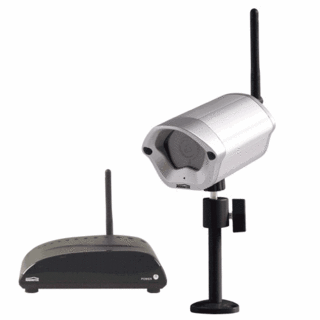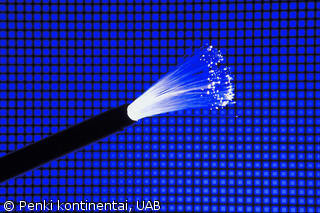Natural language commands will be a key feature in the future development of the PC interface.
Published:
23 March 1999 y., Tuesday
There is probably no sector of the multimedia market that has been more transformed in the last 13 months than speech recognition. Changes include the way voice recognition is used on the PC, a marked improvement in recognition quality, and the widespread introduction of automated systems in European telephone transactions. 1998 was the year that we turned from discrete speech to real or continuous speech. The PC market is owned by IBM with its Via Voice, Lernout and Hauspie with Voice Xpress and Dragon Systems with Naturally Speaking. All three packages are continuous speech technology. All were released this year, and all retail for under $100, including a microphone. Voice Xpress and Naturally Speaking can reach speeds approaching those of a good typist. All include natural language commands. This will be a key feature in the future development of the PC interface. Natural language interpretation, married to voice recognition linked to digital information stored with digital content could make for a formidable revolution. The technology for this is just a year or two away, but the content format has yet to be defined. L&H will be debuting an integrated dictation and language translation package. Using the companies existing speech recognition technology, the software will instantly translate the spoken text into German, French, Italian, Spanish or Portuguese. The company also says it will demonstrate a German version of what it calls its "near human like" computerised voice, called RealSpeak. The other revolution in speech recognition has been in industrial-grade telephone systems. All over Europe organisations like cinema chains are installing systems that can choose from limited lists of possibilities. This type of limited speech recognition can run on very cheap digital signal processing (DSP) chip-based cards. The dedicated processing strategy of the DSPs offers massive cost savings and massive performance improvement over a more broad general PC approach.
Copying, publishing, announcing any information from the News.lt portal without written permission of News.lt editorial office is prohibited.
The most popular articles
Software company announced new structure_ of it_s business.
more »
 Just a few weeks ago, the world's tiniest video camera was as small as a grain of rice. Today, the world's NanoEst camera is even smaller.
more »
Just a few weeks ago, the world's tiniest video camera was as small as a grain of rice. Today, the world's NanoEst camera is even smaller.
more »
 During the experiment two research groups managed to overcome a symbolic 100 TB/s optical fiber data transmission speed limit.
more »
During the experiment two research groups managed to overcome a symbolic 100 TB/s optical fiber data transmission speed limit.
more »
 Apple’s long–awaited online storage service for iTunes could be named iCloud, if only rumours are to be believed.
more »
Apple’s long–awaited online storage service for iTunes could be named iCloud, if only rumours are to be believed.
more »
 The founders of video-sharing site YouTube have bought bookmarking service Delicious from Yahoo.
more »
The founders of video-sharing site YouTube have bought bookmarking service Delicious from Yahoo.
more »
 The successful raid by hackers on Sony’s PlayStation Network is already being ranked among the biggest data thefts of all time.
more »
The successful raid by hackers on Sony’s PlayStation Network is already being ranked among the biggest data thefts of all time.
more »
 Apple has denied that its iPhones and 3G iPads have been secretly recording their owners' movements.
more »
Apple has denied that its iPhones and 3G iPads have been secretly recording their owners' movements.
more »
 Customers who have waited nearly 10 months for the white version of the iPhone 4 won’t have to wait much longer. The Great White iPhone 4 is finally here.
more »
Customers who have waited nearly 10 months for the white version of the iPhone 4 won’t have to wait much longer. The Great White iPhone 4 is finally here.
more »
 Researchers at Georgia Tech University are teaching a robot the basics of dialogue. Named "Simon", the robot has already been taught how to attract a person's attention but eventually, it's hoped he'll be able to interact and converse with humans in daily life.
more »
Researchers at Georgia Tech University are teaching a robot the basics of dialogue. Named "Simon", the robot has already been taught how to attract a person's attention but eventually, it's hoped he'll be able to interact and converse with humans in daily life.
more »
 3D? Terribly lame when it's tossed into devices as a bullet point feature. Trimensional for iPhone takes a picture of your face and maps your mug in a 3D model.
more »
3D? Terribly lame when it's tossed into devices as a bullet point feature. Trimensional for iPhone takes a picture of your face and maps your mug in a 3D model.
more »
 The European Union is to investigate whether internet service providers (ISPs) are providing fair access to online services.
more »
The European Union is to investigate whether internet service providers (ISPs) are providing fair access to online services.
more »